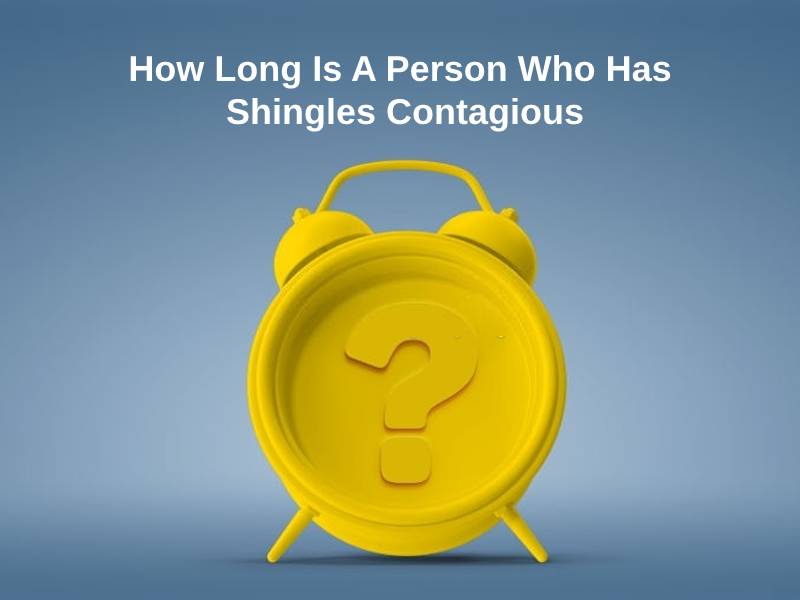Exact Answer: 14 – 28 days
The virus varicella-zoster is the prime culprit behind Shingles infection. This virus is also the cause behind the well-known chickenpox disease. Shingles are also known by the name herpes zoster. Shingles is a nerve infection wherein one nerve and the skin around it get affected. People who have shingles develop a rash (which later grows into a blister) on one part of their body, most commonly on the torso or the face. Interestingly, only a person who has previously had chickenpox or is exposed to the virus can contract it. The risk of getting shingles and complications arising from it increases as a person grows older.

How Long Is A Person Who Has Shingles Contagious?
| Type | Time period (in days) |
| Normal case of shingles, no complications | 14 – 28 |
| Intense case of shingles, with complications | (depends on what complications appear) |
Shingles manifest in the form of a painful rash on one part of your body. At first, there is nothing but pain which shows up physically as rashes, which further develop into itchy blisters, as can be found in chickenpox. These blisters may keep appearing for up to a week, depending on the severity of the infection. After a few days, they will turn yellowish, dry out, and scab over. When the scabs fall off, they might leave slight scars on your skin.
An episode of shingles will find you in near-constant pain in the area affected. The pain may be mild or intense from person to person. The skin will also become tender, and you will have to exercise great caution in not giving in to the urge to itch. While not severe, shingles are contagious for up to 14 – 28 days.
If you see the following symptoms, contact your physician for a diagnosis:
- A constant dull/gnawing/sharp pain in the side of the body
- Skin rash-like in chickenpox, but on one side of the body
- Blisters developing from the rashes
- Fever and fatigue
- Chills
If the virus attacks parts of the face like eyes, mouth, etc. you may observe headaches, swelling, toothaches, redness in the eyes, etc.
Curiously, you cannot contract shingles from an infected person. But if you have never had chickenpox / not gotten the vaccine, you can contract chickenpox from a person with shingles. Your case of shingles could then arrive later in your life.
Why Is A Person Who Has Shingles Contagious For That Long?
Whether shingles get transmitted from one person to the other or not depends on a variety of factors. The most important of them is if the other person has previously contracted chickenpox or taken its vaccine or not. In the former case, the person will not be infected presently but might develop shingles later in their life. This is because of the VZV laying dormant in their bodies. In the latter case, its transmission is possible only if there is direct contact with fluid from the blisters.
Shingles are also contagious only from the time blisters appear till the time they scab over and fall off. Therefore it is essential to keep the blisters covered to prevent contagion.
Other factors like age and weakened immune systems will increase the probability of getting shingles and developing complications from it. Some complications that could arise are –
- Postherpetic neuralgia – when the pain from shingles lasts for more than 1-2 months after the blisters heal
- Eye and vision problems
- Weakness
- Problems with balance, hearing, or vision
- Damage to blood vessels
- Inflammation of brain or spinal cord, and
- Very rarely, death
The best way of avoiding shingles is to get vaccinated. The chickenpox vaccine will protect you not only against chickenpox but also against shingles, as they both originate from the same virus. This vaccine is available both to children and older adults. However, you must not get your child or yourself vaccinated before discussing any risk factor with your doctor first.
Conclusion
The same virus that leads to chickenpox also causes shingles which is a mild disease. If you or someone you know has shingles, you can help prevent contagion by covering your blisters till they heal. As that is the only method of transmission, there is no issue in breathing the same air as an infected person.
Shingles and chickenpox can be avoided by getting vaccinated, especially in early childhood. Make sure to consult your doctor for the best time to get a vaccine if you didn’t get it as a child.